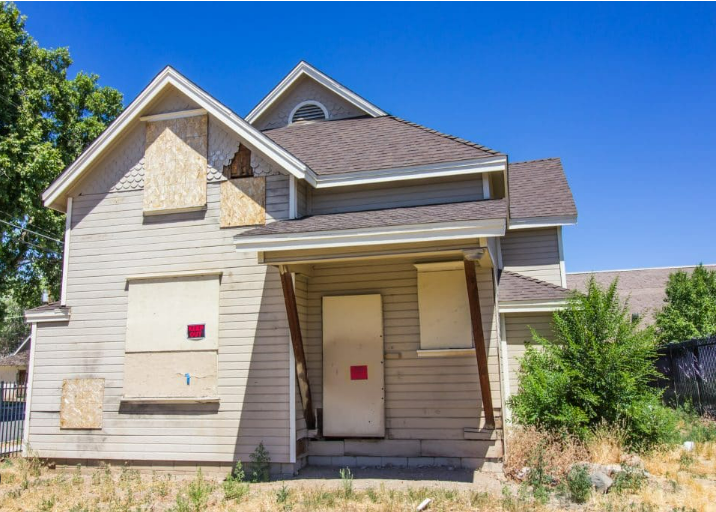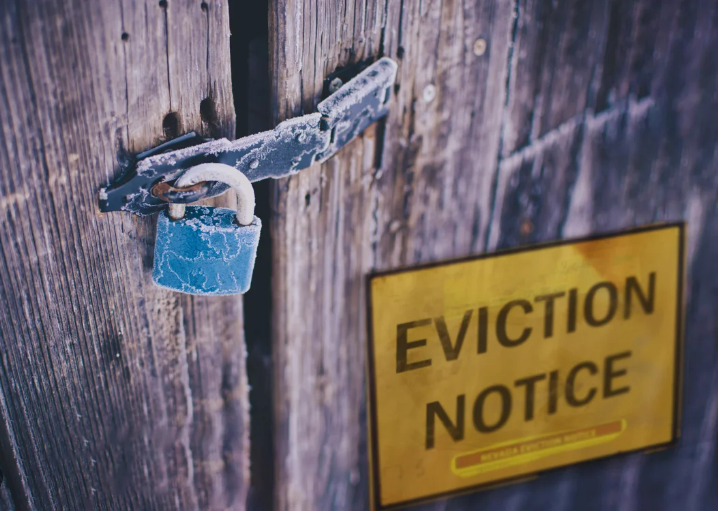What is Vacant Home Insurance?


You might assume that vacant home insurance is less expensive than standard homeowners insurance, but vacant properties are actually riskier and can be more costly to insure. An empty home, whether due to repairs or awaiting occupancy, is more vulnerable to damage or vandalism since it lacks regular maintenance and security. If you need to file a claim, having vacant home insurance can provide essential financial protection.
What is vacant home insurance?
Vacant home insurance is a specialized type of property insurance designed for homes that will be unoccupied for an extended period, typically 30 days or more (though this duration can vary by insurer). Standard homeowners insurance policies usually exclude coverage for vacant homes because they pose a higher risk for claims. For instance, vacant homes are more susceptible to vandalism and may suffer greater damage from storms since there’s no one present to make temporary repairs.
Vacant home insurance can be purchased either as an endorsement to your existing home insurance policy or as a separate policy. When bought separately, it is usually issued as a DP-1 policy form, which differs from a standard homeowners policy (HO-3) or a rental property policy (DP-3).
It’s also important to differentiate between “vacant” and “unoccupied” homes. An unoccupied home is one where the homeowner intends to return, such as a seasonal residence, while a vacant home is not being used for a significant period and lacks regular occupancy.
What does vacant home insurance cover?
Each property insurance company handles vacant home insurance differently. Typically, a DP-1 policy form for vacant property insurance covers the physical structure of your home against risks such as:
- Hail, fire, and lightning
- Smoke
- Windstorm damage
- Explosions
- Riots and civil commotion
However, a DP-1 policy generally does not include coverage for personal property or water damage. Vacant home insurance endorsements, which are added to a standard homeowners policy, might offer additional coverage beyond what a DP-1 provides. To explore the various coverage options, consult with an insurance agent who can help you understand the differences between separate policies and endorsements.
Who needs vacant home insurance?
Insurance companies have varying criteria for what qualifies as a vacant home, including the length of time the property is unoccupied. You may need vacant or unoccupied home insurance if you:
- Recently purchased a house and plan to move in after 30 days
- Inherited a property and don’t intend to move in within 30 days
- Are selling your home and have removed all personal property
- Have moved out of your home and plan to use it as a rental in the future
- Are not living in your home due to extensive renovations
For homeowners who own their property outright, vacant home insurance is optional, similar to standard home insurance. However, financial professionals often recommend having a policy to protect yourself financially. If you have a mortgage on your vacant home, your lender will likely require you to purchase vacant home insurance.
How to buy vacant home insurance

Purchasing vacant home insurance is similar to buying standard homeowners insurance. You can often obtain it as a standalone policy or as an endorsement through your current homeowners insurance provider. Here are the steps to consider when buying insurance for an empty house:
Consider what you’re looking for from an insurance provider
Before requesting quotes, it’s useful to identify your insurance priorities and set a budget. For instance, you might prefer an insurer with a robust digital platform for easy online account management or a company with positive customer reviews and high ratings. If you’re working with a tight budget, you might focus on finding the most affordable policy. Clarifying your preferences can streamline the shopping process and help you find the best fit for your needs.
Research the best vacant home insurance companies
Once you’ve determined what you need from an insurance company, start searching for carriers. Keep in mind that the best vacant home insurance might not always be the cheapest option. Check if your current home insurance provider offers a vacant home endorsement or standalone policy, as you might qualify for a bundling discount. If you’re looking for a separate policy, explore providers that offer vacant home coverage in your state and compare coverage options, add-ons, and discounts.
Since not all carriers provide vacant home insurance in every state, you may need to broaden your search. Companies like Farmers, American Family, and Foremost offer vacant home insurance.
Get quotes to find the cheapest vacant home insurance
The next step is to obtain quotes from the insurance companies you’ve researched. For the most accurate quote, contact an agent and explain your situation. They can recommend the right coverage amount, help you choose policy limits, and check for any available discounts. If possible, get quotes from multiple companies to compare coverage options and prices. Be aware that vacant property insurance often costs 50 to 60 percent more than a standard homeowners policy, so be prepared for a potentially higher estimate.
Set up a policy
The final step is to finalize your vacant home policy or add the endorsement to your existing policy to activate your coverage. If you’re replacing your standard homeowners insurance with a vacant home policy, ensure there’s no lapse in coverage. Your insurance agent will assist you in managing the transition to prevent any gaps in your coverage.
Is there a difference between vacant home and unoccupied home insurance?
Vacant homeowners insurance and unoccupied homeowners insurance are distinct from each other.
An unoccupied home is one where the homeowner is temporarily away but plans to return soon. The utilities are typically still active, and the home may still contain furniture. In such cases, a standard homeowners insurance policy usually suffices to cover the property. Seasonal or vacation homes often fall into this category, as they are not truly vacant since the homeowner still intends to use the space. It’s important to check with your insurance company to determine how long your home can be unoccupied before requiring vacant home insurance.
A vacant home, however, is one that is not being used for reasons beyond seasonal absence. This could include properties that are on the market, undergoing major renovations, or between tenants for an extended period.
To ensure you have the appropriate coverage, review your specific situation with a licensed insurance agent. They can help you determine whether you need vacant home insurance or if your existing policy will suffice.








